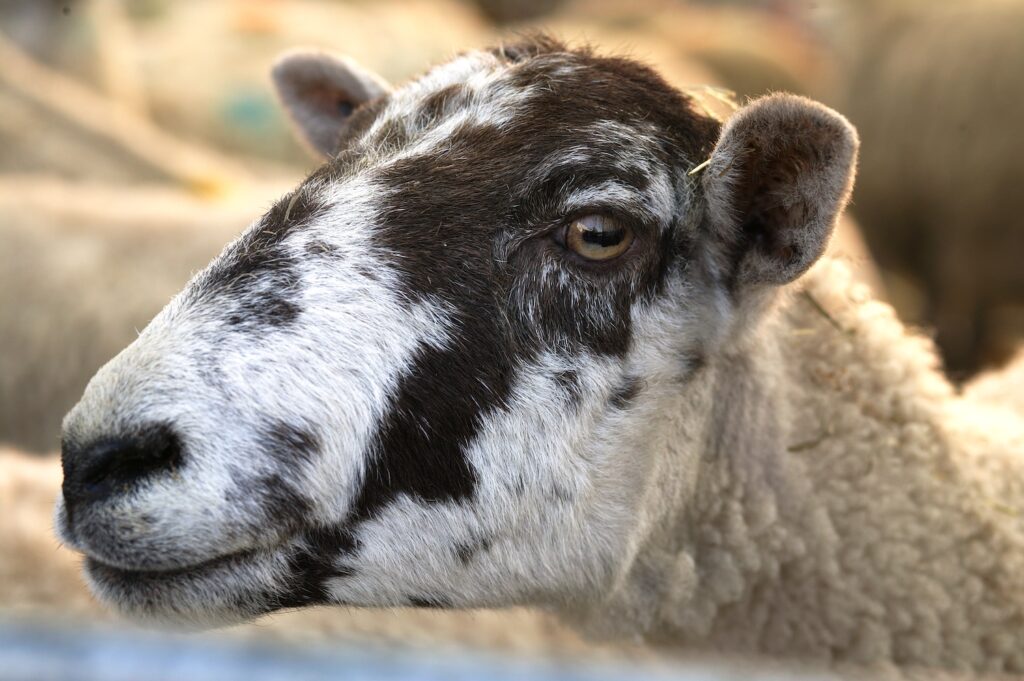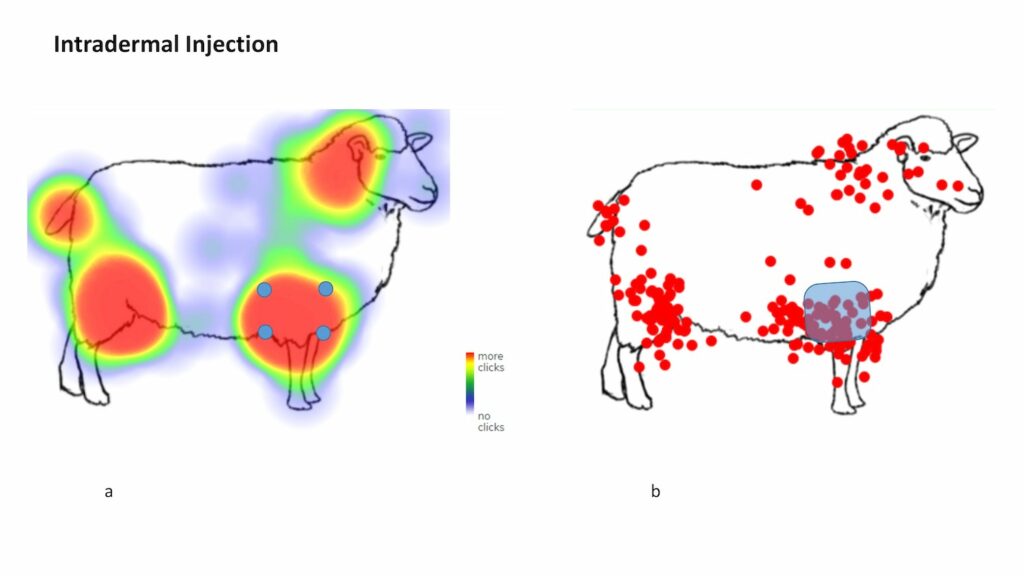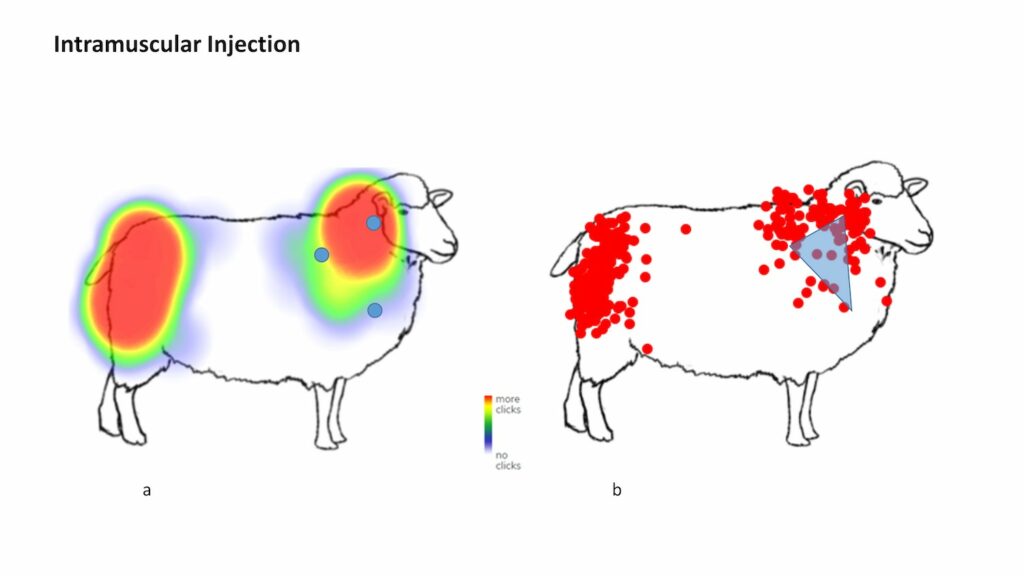Better training needed to tackle sub-optimal sheep vaccination, survey suggests
21st July 2022
New research by the Royal Veterinary College (RVC) indicates suboptimal vaccination practices in the UK sheep industry, and highlights the barriers faced by farmers looking to access training.
An online survey of sheep farmers conducted by RVC researchers found that only a quarter of participants (26.1%) were able to identify the correct location for subcutaneous vaccine administration – while 38% were able to correctly identify intra-dermal, and 7.7% intramuscular.
Under half (45.5%) of participants stored vaccines in a fridge specifically for veterinary medicines, 33.9% used a temperature logger and 6.4% undertook daily fridge temperature checks. In addition, 45.5% of respondents kept vaccines 48 hours or longer after first use and 11.1% kept them until the next time they planned to vaccinate.
Incorrectly stored and broached vaccines may result in ineffective vaccination of sheep, the researchers warned. Vaccine procedures are implemented based on farm disease risk so animal welfare may be inadvertently compromised.
Other key findings:
- 66.8% of farmers buy their vaccines from an agricultural merchant while 29.1% purchase them from their vet
- 10.1% of farmers learnt how to vaccinate from their farm merchant, 48.1% from their vet and 44.4% from an associate
- Only 43.7% of farmers received training in vaccinations, however, this was due more to barriers than a reluctance to training with 83.9% of respondents saying they would consider attending a course in person or online to improve their knowledge of the safe use of medicines.
The barriers to training were identified as time (45.6%); money (35.8%); not being aware training courses existed (34.8%); and feeling they already knew how to vaccinate safely and effectively (40.7%). Additionally, 73.9% of respondents were unaware of any training courses they could attend, highlighting the need for advertising and promoting training within the industry, researchers said.
As a result of the findings, researchers are calling for more consistent messages on vaccination technique and streamlining of training within the industry. They also highlighted a need for more options for vaccination training to be clearly available to farmers – and pointed out the opportunity for vets to offer training to farmers.
Suboptimal vaccination techniques can result in less effective vaccinations and potential harm to animal welfare, including injection site lesions. Improving technique and storage could enhance vaccine efficacy, animal welfare and reduce disease; whilst preventing wastage of valuable cuts of meat, improving sustainability and increasing small margins for farmers, RVC said.
Senior lecturer in Production Animal Science at the RVC, Dr Nicola Blackie, said:“Suboptimal vaccination technique is not due to unwillingness to attend training but more needs to be done to promote and reach the farmers.
“There is evidence that suboptimal vaccination technique is potentially occurring on UK sheep farms. For all injection types, a wide range of vaccination locations were indicated and a majority improperly administered or stored vaccines.”



